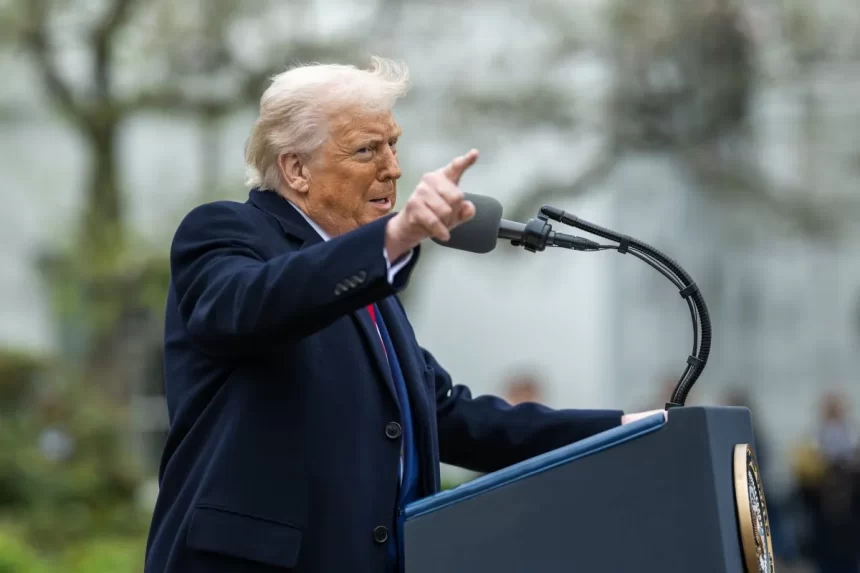
President Trump’s second mandate found a series of executive orders that immediately affected the meetings industry.
On the day of the inauguration, January 20, Trump signed the executive order, “ending the Dei programs of the radical government and waste and preferences.” Eliminates federal diversity, equity and inclusion programs (DEI). All the Federal Personnel of Dei was also licensed.
Federal agencies responded by canceling or reducing Dei related events. They include training, conferences and observances of the months of cultural heritage.
The corporations quickly followed their example. Many withdrew from Dei’s commitments and events to avoid regulatory scrutiny or loss of federal businesses.
Another Trump order ordered federal agencies to define gender as strictly masculine or female. This movement created legal and logistics obstacles for pride events and conferences centered on inclusion.
“The last 100 days are not only in an executive order. They have unleashed a wave of presidential actions, many hunched in coded language, aimed at sowing division, exclusion and historical inequality,” said Rhonda Payne, founder and CEO of Flock’s theory, a consultancy that specializes in the development of the workforce, learning and events. “But there is a counterintuitive truth that arises. This political overreach is strengthening Dei’s core. It is revealing who was only to the surface and who is committed to real work.”
Medical meetings face
The Trump administration has implemented or tried to freeze federal grants and loans, including those who support health research and scientific meetings. Altheghie freezed faced legal challenges and were temporarily blocked, the administration has indicated a continuous intention to potentially review federal spending on medical research and conferences.
The cuts or uncertainty in the funds of agencies such as the National Institutes of Health (NIH) and the FDA are leading to less sponsored medical meetings, budget budgets of reduced events and less support for travel and participation, especially teams and tosches and toheschrers and airsarpers and the thugs and thesarpers and tosarpers and tosarpers
Medical and scientific meetings planners are dealing with a new panorama where the access, financing and assistance of the conference are no longer guaranteed, said Pat Schaumann, president of Schaumann Consulting Group, who is also the director of the professional’s health meeting.
Cancellation assembly
The Providence Warwick Convention and Visitors Office at Rhode Island received its first cancellation meeting on January 27. The conference, focused on renewable wind energy on the high seas, included 3,300 rooms and was exarred to generate $ 1.8 million in direct expenses.
Three more cancellations, including a conference focused on veteran affairs and another for the IRS. These groups represent $ 2.4 million in direct spending and 5,235 lost room nights.
Brett Sterenson, president of the hotel’s lobbyists, a company selection company that works mainly with government events, has had 58 cancellations, representation of $ 2.5 million in revenues of lost hotels.
“In recent days, although cancellations have slowed down, possible because there is little to cancel, new reserves are small and extremely last.
Trump tariffs increase the event costs
On March 4, a 25% tariff on Mexico’s assets and the effect of Canada toks, which led Canada to retaliate with tariffs on US imports, including steel and aluminum products, products, appliances and liquors.
Rates have increased the costs of essential materials. Including exhibition booths, stages and audiovisual equipment, organizing budgets and exhibitor budgets.
The promotional product industry has been particularly affected. A 31 -year -old promotional products supplier has had to overcome its 70 employees.
Planners now include stipulations in their contracts to mitigate the impact.
Uncertainty clouds of future
Geopolitical tensions, change policies and economic volatility have created uncertainty. The event professionals say that customers hesitate to commit themselves. The hiring deadlines are growing. And long -term planning is extremely challenging.
At the same time, Trump’s renewed approach in restrictive immigration immigration that reaches meetings and conventions with force. The scrutiny of the visa, more paperwork and slower processing times have made it difficult for international attendees to enter the United States.
The visa scrutiny, the increase in documentation requirements and extended processing times make it difficult to be more difficult for international delegates ensure entry to the United States.
As a result, some groups are moving events in the United States to other parts of the world.
The leaders of the incentive industry are uncertain not only about destination decisions, but about whether some of their clients’ programs will take place.







